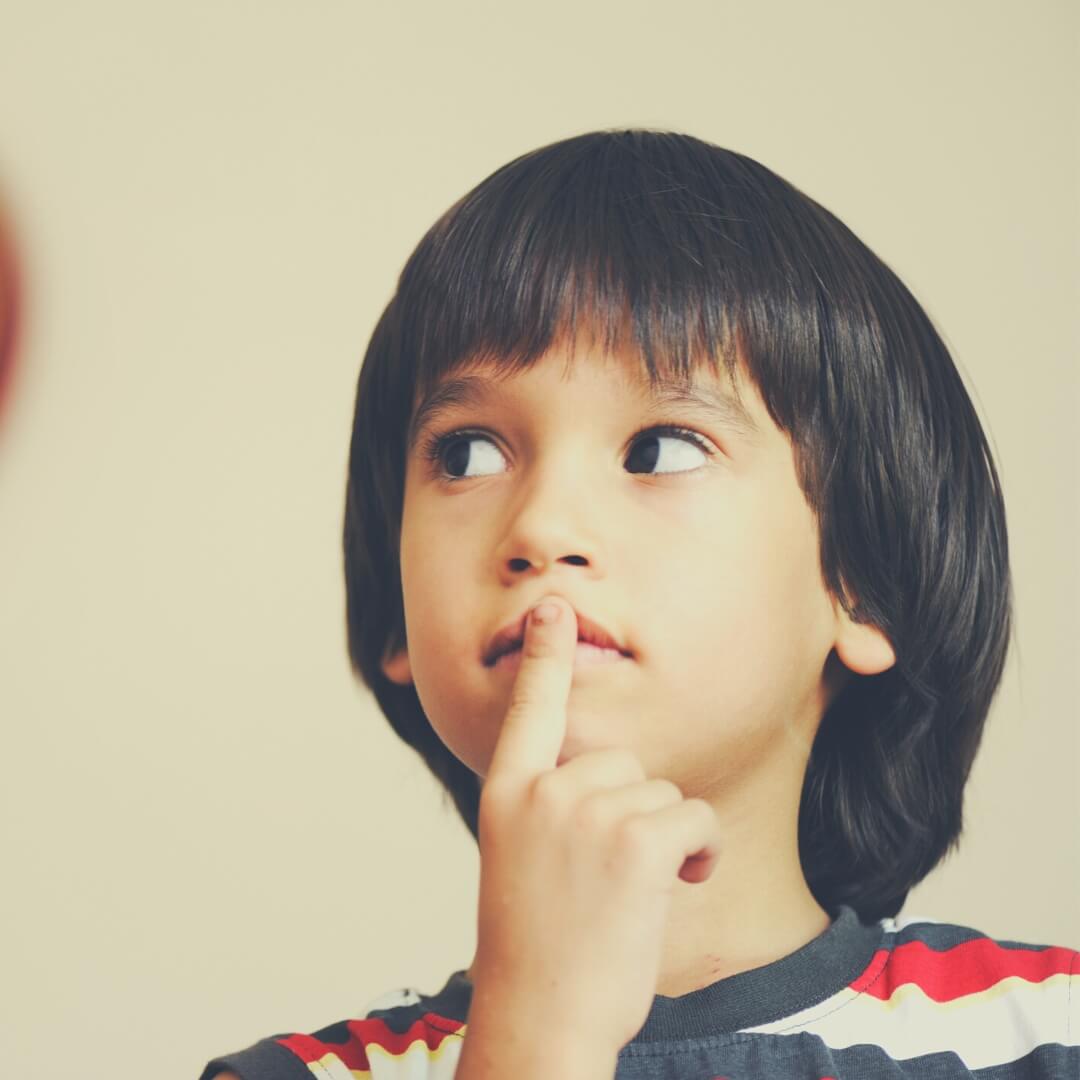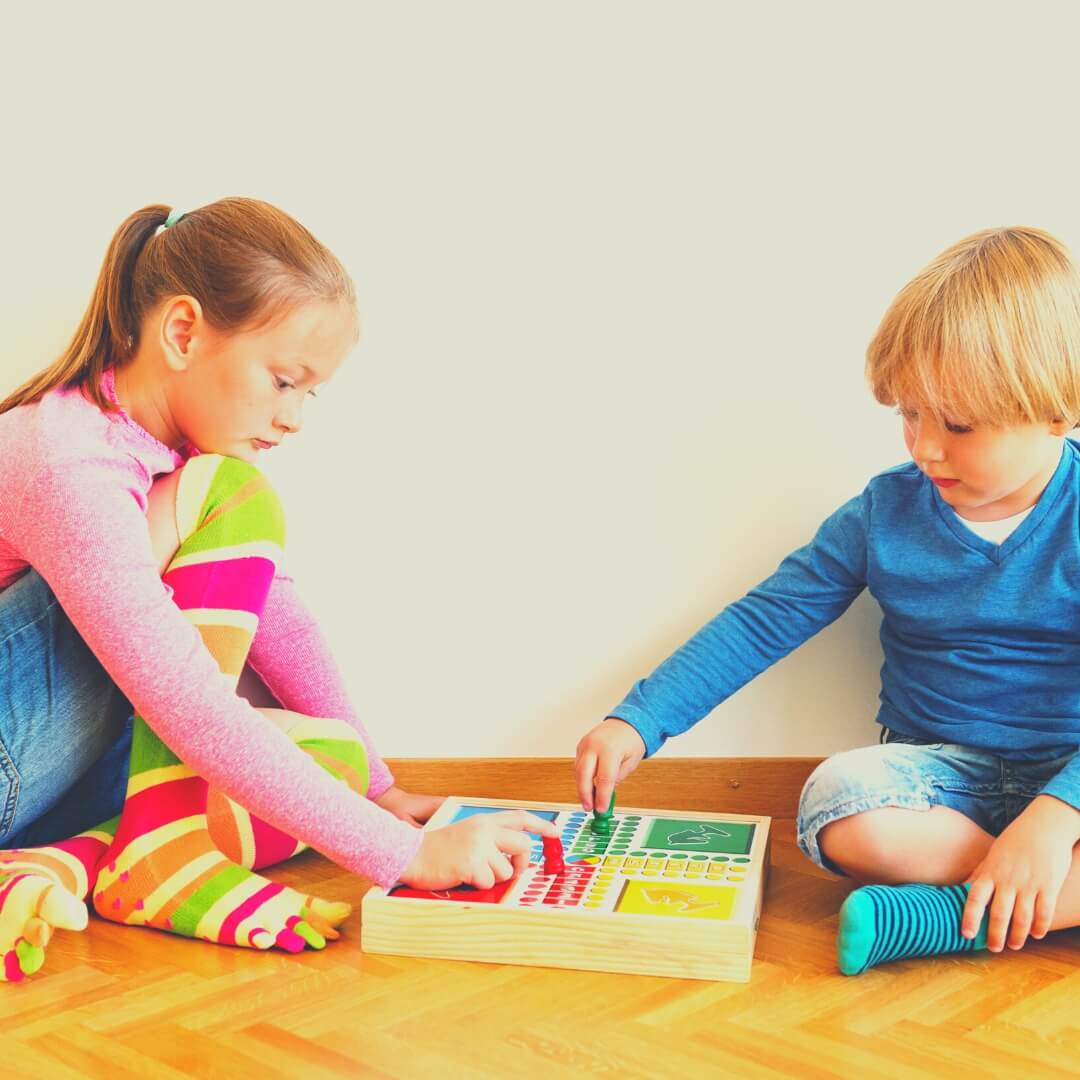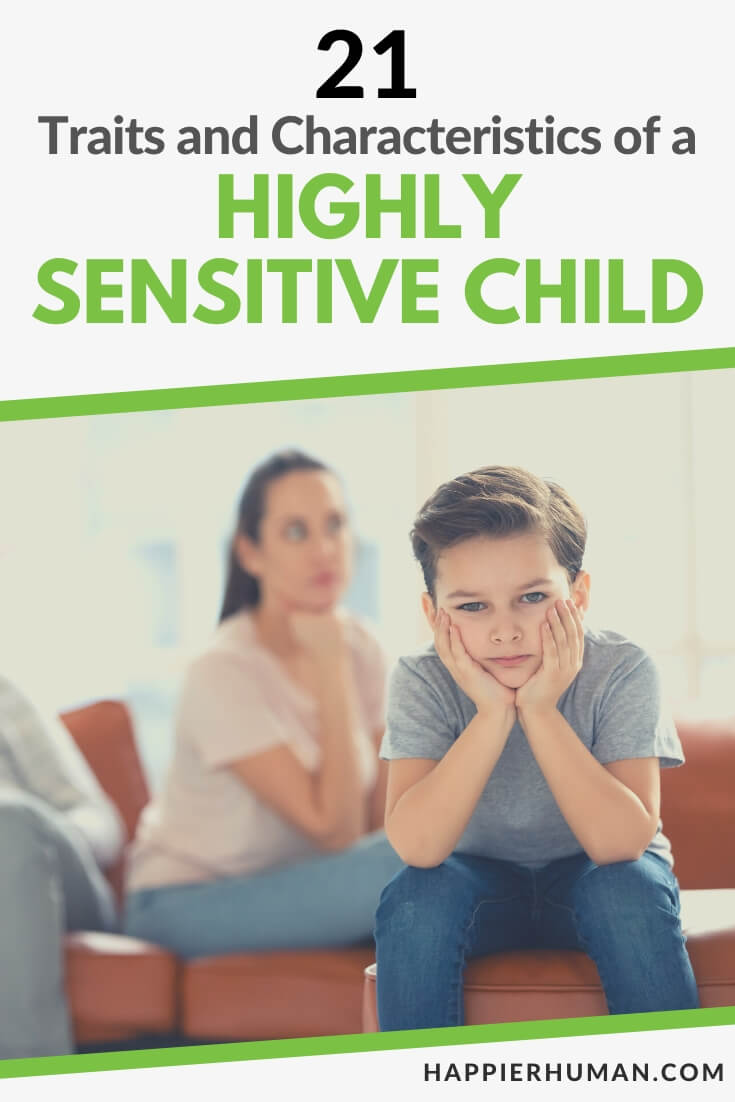Imagine having a highly sensitive child who feels profound compassion for animals, even insects. This child hates violence and cruelty, routing the conviction toward justice.
This child is a rescuer of the innocents and an empath who physically feels others’ pain. The child is overly generous, intelligent, witty, lonely, worried, a reader and writer of poetry, and a lover of nature and art.
This highly sensitive child has self-awareness and wisdom that supersede their peers.
Imagine having a child who would become the greatest president in American history: Abraham Lincoln. This is who he was.
This article will explain or define what it means to have a highly sensitive child, how to confirm it, misconceptions about it, highly sensitive traits and characteristics, tips for parenting, and examples of scenarios for handling the challenges of a highly sensitive child.
Armed with this knowledge, you can help your child see the uniqueness and advantages that make them valuable and special.
What is a Highly Sensitive Child?
A highly sensitive child is born with a hyper-aware nervous system and brain that prompts them to react instantly, firmly, and conscientiously to their environment, others’ emotions, injustice, and other potentially overwhelming stimuli.
Even though 15-20% of the population exhibits highly sensitive traits, it is neither a mental health condition nor a medical diagnosis.
High sensitivity by itself is not a disease, illness, or neurodivergence. However, the characteristics of being highly sensitive may overlap with ADHD, Autism, or anxiety.
How to Obtain a Proper Diagnosis or Confirmation
First, being highly sensitive is a personality trait, not a disorder, mental health issue, or medical issue, so it cannot be a diagnosis.
Secondly, to verify or confirm that your child is or is not highly sensitive, you will need to make an appointment with a professional child psychologist, counselor, or therapist.
These professionals have the experience, training, and tools to give your child the evaluations, encouragement, and care they need. They can also help you understand and support your child better.
Here are links to help you locate a professional child psychologist in your local area:
Remember: Do your due diligence via background and certification checks, reviews, and references on whomever you choose to treat your child.
Misconceptions of a Highly Sensitive Child
It is common for parents, teachers, counselors, and others to have misconceptions about highly sensitive children. Too often, it is easier to take a quick observation and assume it is something it is not.
Unfortunately, this isn’t helpful in understanding the personality trait, nor is it helpful to the child.
The following are a few common misconceptions about a highly sensitive child:
Of course, none of these misconceptions are true about a highly sensitive child. However, no one is exactly the same, and high sensitivity may overlap with another condition or issue.
To better understand, let’s look at some specific traits and characteristics of a highly sensitive child.
21 Traits and Characteristics of a Highly Sensitive Child
A highly sensitive child is deeply empathetic, and they take it to heart. Understanding their personality traits and characteristics is the first step in training yourself to perceive their needs.
It will also allow you to give them the tools to navigate through life with confidence and success.
These are 21 traits and characteristics that make your highly sensitive child unique and brilliant:
1. Overwhelmed by stimuli like lights, sounds, and smells
Because your child is highly sensitive and absorbs every detail of their surroundings, it doesn’t take long for them to be startled or overwhelmed by lights, noises, or smells.
In deciphering those details, the stronger the information is and how rapidly it comes can easily be overwhelming.

For infants, the result of overstimulation may look like crankiness, crying, tiredness, jerking, or kicking. It can appear the same way in toddlers, with anger, tantrums, disinterest, or irritability.
2. Strong curiosity or inquisitiveness
The combination of having a keen awareness of themselves and their environment with the inherent internalizing of emotions and experiences, a highly sensitive child tends to be talkative, inquisitive, and very curious.
They want to better understand what is touching them so deeply.
A highly sensitive child’s curiosity contributes to:
3. Extreme sensitivity to others’ emotions and moods
A highly sensitive child takes in information and details more profoundly than their peers, making them exceptionally aware and exposed to the emotions and moods of others. It can impact the child to the point of causing emotional or physiological reactions.
The child’s sensitivity is so intense that they absorb or take on others’ emotions over their own.
4. Awareness of changes in the environment
Once again, it’s all about the details. Your highly sensitive child’s strong awareness means they immediately notice changes in the environment, good or bad. Then, these changes will affect your child positively or negatively as they internalize the information.
A negative change in the environment may lead to:
A positive change tends to create a sense of security, creativity, more empathy, deeper thinking, and happiness.
5. Perceptiveness and intuition
A highly sensitive child is attuned with themselves, the environment, and others.
They are born with a special personality trait formed by a unique set of genes. The trait then ignites particular brain activation patterns, giving them perceptiveness and intuition that seems like magic to others.
Children with the highly sensitive personality trait are aware of the energy around them, feel other’s emotions deeply, detect lies with incredible accuracy, and often know things before others do. They are often considered to have deeper insight and wisdom as well.
6. Sensitivity to pain
Highly sensitive children are more reactive to pain, whether physical or emotional. This is one of the reasons harsh discipline rarely works to positive effect on a sensitive child. Calm, explained, rational correction is better.
7. Preference for quieter activities
A preference or need for quieter activities for a highly sensitive child stems from the exhaustive nature of how they process information and stimuli.
More peaceful activities like soft music, coloring, reading, drawing, or walking can help recharge their internal batteries.
8. Anxiety of new people and situations
The anxiety of meeting new people and new situations can overwhelm and exhaust a highly sensitive child because they are trying to keep up with the intense attention to detail and internalizing those details.
It could help ease the overload to slow the introductions and take it step-by-step.
9. Slowness to warm up mistaken for shyness
Highly sensitive children are slow to warm up to others, not necessarily because they are shy, but because they are processing the emotional and social details and how they relate to them.

This is why they appear nervous, anxious, or standoffish.
10. Strong sense of empathy for other people and animals
The empathy and strong bond between animals and highly sensitive children are likely based on unconditional love, acceptance, innocence, and goodness.
Again, when these receptors activate, positive feelings dominate and flood endorphins into the bloodstream, which is mentally and physically healing. Their empathy also extends to people, especially other children.
11. Sensitivity to textures, uncomfortable materials, or clothing
Certain foods, flavors, textures, materials, clothing, or other bothersome sensitivities often repel highly sensitive children.
If your child gags, cries, pulls at a clothing tag, or kicks off a scratchy blanket, they’re likely having difficulty processing the uncomfortable stimuli.
12. Leans toward caution
Leaning toward caution and processing the information before diving in isn’t really a bad thing. Being ridiculed, harassed, or punished for their extra caution will likely lead to frustration, anger, and aggressiveness.
The best thing to do is to let them take their time to be comfortable in their caution without making it a negative experience. Be careful not to overwhelm them by making them feel rushed.
13. Display of emotional extremes
The emotional extremes of highly sensitive children are directly related to the intensity of how they feel emotions.
When they feel them, they tend to feel them big. This sometimes causes them to make exaggerated claims in an attempt to express how strongly they’re being affected.
Emotional extremes are tied to a sensitive child’s low tolerance for frustration, deep absorption, and internalization of stimuli, emotions, and experiences. It may also make them over-worry, adversely affecting their sleep and mental and physical health.
14. Susceptibility to overwhelmed or stressful meltdowns
Children who are not as highly sensitive don’t internalize or take in information in ways that cause them to feel overwhelmed as quickly.
A highly sensitive child, however, fills up and spills over with emotions, much like pouring too much water into a glass. When it happens, a meltdown occurs.
The best way to help your child in this instance is:
15. Needing a structured routine
Kids love routines because they know what to expect during their day. Highly sensitive kids rigidly depend on routines because knowing what to expect during their day is critical to their sense of security, stability, and regulated emotions.
16. Perfectionism and disdain for being corrected
This aspect of sensitivity promotes deeper thinking, more intense experiences and emotions, empathy, and creativity. It makes them great problem-solvers and seekers of justice. They are very self-conscious and sensitive to criticism.
17. Difficulty releasing negative emotions
Because the child is adverse to negative emotions like worry or anger, they have difficulty letting go of them once they experience them. You can help process these emotions through active listening to your child and talking through them.
18. Sensitivity to violence through spoken words, fighting, images, or stories containing violence
Sensitivity to violence and anger is a critical marker that you have a highly sensitive child. Where most kids are less sensitive or indifferent to it, a sensitive child cannot ignore it.

Their empathy makes them feel a victim’s pain, and their sensitivity means that they hold onto it.
19. Powerful reactions to injustice where moral values intersect with identity
Because a highly sensitive child is attuned to everything, their moral values and empathetic nature intersect with their identity. This connection leads to powerful reactions to injustice in all instances.
20. Requires a substantial amount of time to recharge between activities
It’s not that a highly sensitive child can’t get out and play on the playground with other kids, but they will require more time to recover and wind down before going another round.
21. Experiences trouble sleeping due to overstimulation or a brain that cannot rest
A highly sensitive child may experience trouble sleeping because their brain continues worrying, solving problems, or pondering ideas. Ensure your child has adequate wind-down time before bedtime, including putting away electronic devices, TVs, screens, games, etc.
Now that you know the traits and characteristics, check out the following parenting tips to enhance your skills in raising a highly sensitive child.
Tips for Parenting a Highly Sensitive Child
Parenting tips are always helpful, but they are essential for parenting a highly sensitive child. Since no manufacturer manual is issued when a child is born, every parent must do what they can to educate themselves on raising their child.
The following are a few valuable parenting tips:
How to Handle a Highly Sensitive Child in Certain Scenarios
The following are three hypothetical scenarios that could arise for you and your child or may help you understand how to handle your highly sensitive child in similar situations.
The Restaurant
Your family is having dinner at a popular restaurant. However, the noise levels are pretty loud as crowds joke, laugh, talk, and enjoy time together.
When you notice your highly sensitive child is beginning to react to overwhelmed sensitivities, you dismiss yourself and lead your child away from the area.
Once outside, your child expresses discomfort with the noises and high emotions filling the atmosphere, but you have a plan for this scenario.
You explain to your child that everyone is having a good time and loving one another. You listen to your child’s thoughts, point out all the positive aspects, and talk them through the logical sequence of what is happening.
Then, you break out the specialized earplugs or noise-canceling headphones and place them securely in or on your child’s ears to help lower the noise impact.
You and your child rejoin the family and have a wonderful time.
After School Woes
You pick up your highly sensitive child from school on a typical day. You notice they seem bothered and upset, so you ask. Your child describes how another child hurt their feelings by mocking their traits.
Later in the evening, your child is still bothered and upset about the incident at school. They have a tough time letting go of the criticism. It feels like rejection and causes intense worry to your child.
You explain to your child how their sensitivities make them seem different from other kids, but it is not a weakness or a flaw. Instead, they have an incredible gift to love others like no one else; they’re smart, kind, funny, and creative in ways others may not understand.
Flipping the script will give your child a priceless sense of self-confidence and acceptance.
Broken Routine
The day arrives when a holiday cuts the school day short, and your partner or spouse cannot pick up your child from school. You have to make alternate arrangements so you can make the pick-up instead.
On top of that, an accident creates a traffic headache, and you arrive late at the school.
On the way home, your highly sensitive child breaks down in tears. You pull the car into a parking lot and try to calm their nerves. Your child expresses confusion, frustration, and is overwhelmed about the day and doesn’t know how to put it all back into perspective.
You explain how and why the routine changed with a positive spin to lessen your child’s worries and re-establish a sense of stability and security.
Arming your child with the ability to break it down and process the change will give them confidence and coping tools they will use throughout their life.
Final Thoughts on Highly Sensitive Child Traits
A highly sensitive child instilled with confidence and self-esteem will evolve into a working adult who is educated, detail-oriented, dedicated, and witty with a sharp sense of humor.
They get the job done, desire peace in the office, tend to read people accurately, and care about others. What employer doesn’t want that?
When you communicate with your highly sensitive child on a consistently empathetic level, you increase their chances to feel accepted and successful throughout their life.
That’s the best gift you can give your child. After all, you never know if you’ve got a little Abe on your hands.
Check out 15 Best Jobs & Careers for Highly Sensitive Persons (HSPS) for ideas about opportunities that may be ahead for your highly sensitive child.
And if you're looking for more articles on children, be sure to check out these blog posts:
- 21 Self-Awareness Activities for Kids & Young Students
- 19 Fun Mindfulness Activities for Kids in a Classroom
- 75 Gratitude Journal Prompts for Kids to Be More Thankful
Finally, if you want to identify YOUR personality type, then take one of these 11 personality tests to better understand what makes you tick.


